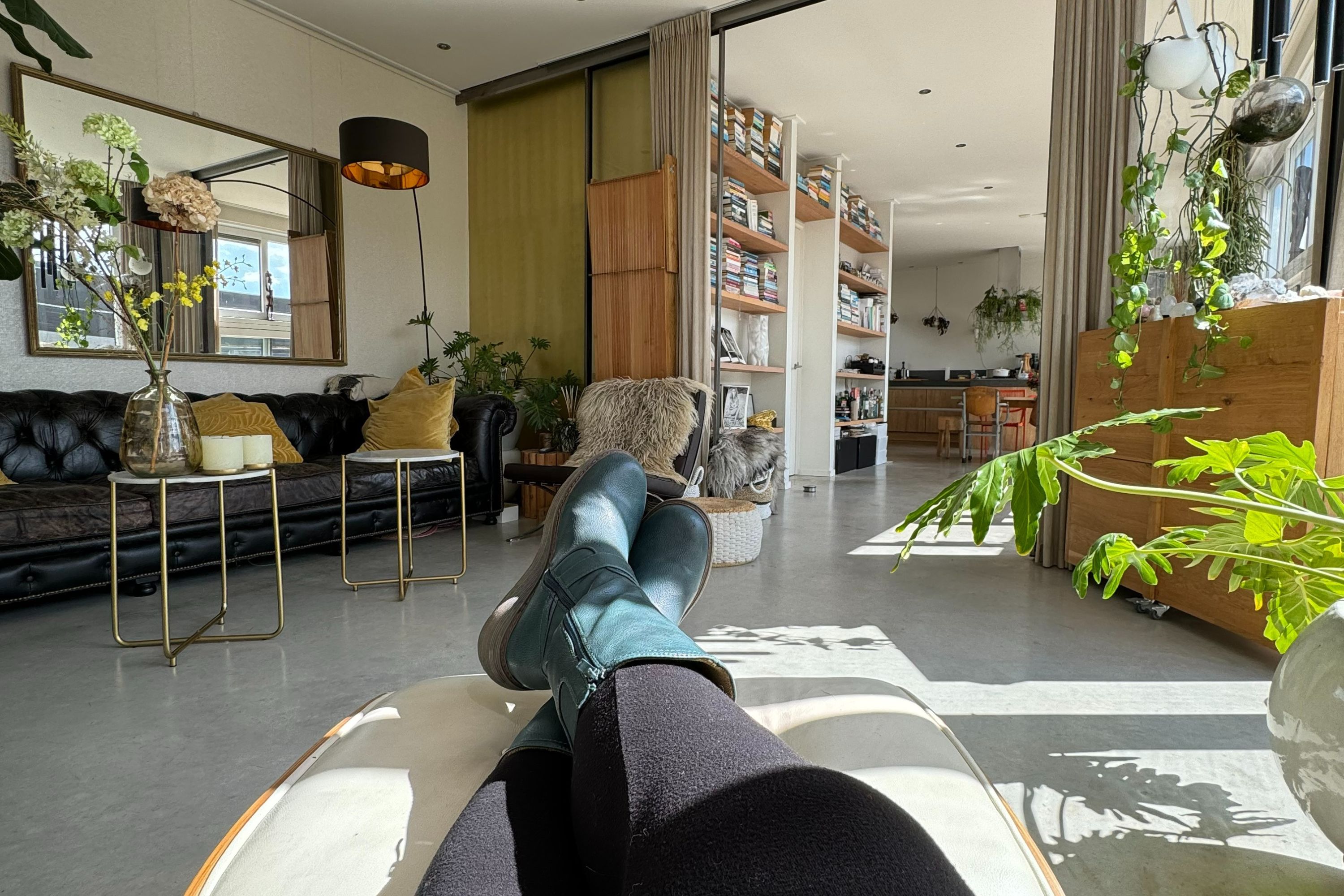I tried the ‘romanticise your life’ social trend as a busy mum of three - here's what happened (and how to try it for yourself)
Could the viral lifestyle trend be the secret to lightening the load for mums?


Parenting advice, hot topics, best buys and family finance tips delivered straight to your inbox.
You are now subscribed
Your newsletter sign-up was successful
Everyone knows that parenting isn't exactly a walk in the park. But could romanticising your life - an idea that started as a social media trend - help to ease the pressures of parenthood? Our Deputy Editor finds out...
Parenting is hard. From the experience of matrescence when you become a mum to coping with the mental load of parenthood, it's a fact that bringing new life into the world can wreak absolute havoc in your own life. Factor in the impact of motherhood on everything from your body image to your relationship - not to mention the hidden costs of parenthood and the dire lack of affordable childcare in the UK - and it's no wonder that motherhood often gets painted in pretty negative terms.
But sometimes I wonder if we’ve gone too far with the ‘trials of parenting’ trope. Don’t mishear me. I’m not minimising the tough bits of motherhood. And I don’t subscribe to the ‘suck it up, buttercup’ perspective that sometimes gets dished out to mums who voice the truth about how challenging parenthood can be.
It's just that parenting is an extraordinary privilege. And I feel that gets forgotten, sometimes, in our quest to be searingly honest about the hard parts of family life. When I voiced this to a friend recently, she joked that I was 'romanticising my life' - a phrase that describes an intentional way of living that's all about noticing the beauty and pleasure that we easily overlook in the mundanities of daily life.
Inspired, I decided to try it out. As a mum to three, I'm guilty of rushing through many aspects of family life with a furrowed brow. Intrigued by the idea that focusing on the positives of parenthood could improve my mood and boost my well-being, I set out to try this social media trend. For seven days I set myself the task of romanticising my life as a working mum, simply by trying to appreciate life's simple pleasures, and the results surprised me. Here's what I learned...

Georgie is a passionate Life Design Strategist, specialising in supporting high-achieving female founders. Her expertise lies in reducing stress, enhancing business performance, and creating lasting personal happiness and fulfilment.
"Romanticising your life is all about finding joy, hidden beauty, magic, significance and meaning in the day-to-day, and the purpose is to enhance your whole experience of life,” explains Life Design Strategist Georgie Shears.
“It serves to rewire the brain to that of a growth mindset where you notice all the positives whereas, before, life may have seemed overwhelming, repetitive or even dull and unfulfilling. You put yourself as the main character in your life, and go through your life looking at the wonder of it all. It’s hugely beneficial for better mental health, creativity, increased happiness and fulfilment.”
Parenting advice, hot topics, best buys and family finance tips delivered straight to your inbox.

Romanticise your life: three things I learned
1. Grateful is better than grumpy
I approached the 'romanticise your life' trend with a dose of cynicism at first. As I woke to the sound of my husband snoring, I pictured myself humbly thanking the Universe for the gift of a life partner - through gritted teeth - instead of poking him in the ribs and hissing 'Roll over!' as normal.
But instead, I paused and snuggled closer. Does snoring take on a magical quality when seen through the lens of a more romantic approach to your life? Nope. But pausing to think differently about the elements of family life that you instinctively moan about is a powerful reframe. The snoring annoyed me less than usual and I felt a flood of gratitude for my human alarm clock. How refreshing to start the day with a smile instead of a complaint.
Georgie sheds light on what was happening. "When you actively seek to find the good in everything, you're rewiring your brain; telling the doorman of the brain (the Reticular Activating System) what you want to see so it will see more of that thing, thus creating new neural pathways,” she says. “So you will naturally become more optimistic and, dare I say, ‘lucky’ - or perhaps you just notice those opportunities you may have let completely pass you by before!"
'Quote of the day... That was exhausting; Daddy normally takes care of all that for me,' I typed.
2. Laughing is better than competing
My husband usually handles the school run but since he was headed overseas on a work trip, I had a particularly frantic morning getting my daughter to school, before dashing back to my desk for a 9 am meeting. Later that day, I texted him to pass on a funny thing our daughter had said as I rushed her out the door in a rather more chaotic fashion than he normally would.
'Quote of the day... That was exhausting; Daddy normally takes care of all that for me,' I typed.
His reply was immediate and quick-witted: 'Is that a quote from you or from our child?' I snorted out loud. Fair play; he does more than his share of the domestic labour in our house and I was feeling his absence as much as my daughter was. Sometimes the one who takes up most of the slack has to be away for you to notice just how much they do when they're there.
Georgie adds: "By actively applying the practices involved in romanticising your life, you are consciously being mindful of that moment. You feel so grateful for what you have right there and then. You become aware you only get this snippet in time but once, which increases the ‘feeling’ of gratitude, calming the nervous system and thus leading to a greater feeling of inner peace and fulfilment."
Is it romanticising my life to stop and recognise the people in my life whose contributions I sometimes minimise? Yes, I think so. Instead of muttering under my breath about not being the one getting to snooze in peace on a ten-hour flight, I enjoyed the witty exchange and its gentle reminder of how lucky I am to be married to someone who brings me a cup of coffee every morning. (And always knows where the PE kit is.)

3. Food is so much more than fuel
Confession: feeding a family of five is one of my least favourite elements of motherhood. It can feel like a relentless, thankless task. I've been making meals for kids for almost 20 years now, and I ran out of exciting meal ideas a long, long time ago.
While romanticising my life as a mum, however, I thought ahead and bought all the ingredients required to make a hearty Irish stew, just like I did when my kids were babies. Instead of shoving yet another Co-op pizza in the oven and scattering salad leaves (that will end up uneaten) pointlessly onto plates, I used my lunch break to prep the feast. Searing beef, chopping carrots and peeling potatoes are tasks I never think I have time for these days but I can't deny that it felt like time very well spent. Mindful, if you like that sort of phrase.
Whether the kids will eat it - or appreciate the lengths I went to - remains to be seen. But approaching dinner with less resentment and more intention definitely lifted my spirits. Could I do this every day? No, but I can carry a little more romanticism into family mealtimes. Romanticising this element of my life reminded me that mealtimes aren't just another obligation on my time; they are an opportunity to nurture my tribe.
"So often, as busy mums, we are trying to get everything done to move on to the next ‘job’ that needs doing so we don’t take the time to absorb exactly where we are - and before we know it the kids are huge and that time is gone," Georgie agrees.
"And all too often we forget about ourselves in this motherhood role. But when you put yourself as the lead role in your life, when you actively practise romanticising your life, you connect more deeply with your emotions. This helps to reconnect you with your creativity and with your whole true self. Couple this with installing new routines and rituals into your day to facilitate the practice, which naturally breaks you out of the autopilot of the usual everyday routine, and romanticising your life can release a new wave of creativity into your life that might be long forgotten."
Romanticising my life as a mum made me happier, calmer and less stressed, as well as more mindful and resourceful. For that reason, I plan to keep romanticising my life. How? Instead of sinking into the sofa and reaching for the Sauvignon with a heavy sigh at the end of the day, I've taken to putting my feet up and taking a few minutes to reflect on the day's achievements.
And talking of new routines, instead of shovelling crisps into my mouth at my desk I've been wandering down the lane on my lunch break to say hello to the local alpacas. Imagine having a field of alpacas nearby and not taking the opportunity to exchange a regular greeting with them?!

Best of all, the romanticising your life trend reminded me that gulping coffee at my desk is not the way to start my day. Instead, I take five minutes every morning to sit outside and soak up the moment. That's a game-changer for my mood and productivity - when I hit my desk, I'm ready to focus, rather than frazzled.
"Stay realistic, you won’t feel positive every moment of every day but you will notice it becomes easier and easier to find the joy in everything," Georgie adds. "What's not to love?”
I started this experiment smirking at the absurdity of the idea of romanticising your life when you're a busy working mum. But I'm ending it convinced that this way of living is key to unlocking so much more of the joy that many of us went into parenthood expecting to find.
How to romanticise your life as a mum
Life Design Strategist Georgie Shears shares six tips for romanticising your life:
- Set your alarm ten minutes earlier - do not look at your phone! Instead, take this time for yourself to appreciate waking up and being gifted another chance to be alive on this beautiful planet. Take a few minutes to breathe steadily, breathing in the fresh new day, full of opportunities. Just a few minutes of mindful breathing and being present with yourself can make a huge difference in your day
- Take a snapshot in your mind - when you are folding clothes or sorting out the washing, notice the size of the kids’ clothes, knowing one day they will be huge! You’ll treasure that memory.
- Treasure the chaos of family meal times - and the demands of having to make different food for everyone! One day you will look back on this time with such fondness. It’ll be over in a flash. Easier than arguing and scraping uneaten food into the bin!
- Create little rituals - just for you in the moments you can. While you brush your teeth, stand on one leg for 30 seconds to one minute - treat this as time you are giving to yourself that 'future you' will thank you for. We get wobbly when we get older, so working on our balance is a real gift to ourselves and it’s the perfect opportunity to take that time when we're standing there anyway.
- Take a walk after the evening meal - bribe the kids with a biscuit or something - who cares - it’s a special time together to be grateful for. And it's great to get moving after eating too - for both mind and body - so you can feel grateful for the opportunity to be able to do that too!
- Take mental photos every time you hear the kids laugh - or when you all laugh at something at the same time. These are the things life is really about. No matter how chaotic and busy we feel.
If that's inspired you to think about your own life differently, you might enjoy 10 things I've learned about love after 25 years of marriage or 'When their idea of heaven is your idea of hell' - thank you, Alex Jones, for reminding us what family holidays are all about. If you're looking for more on motherhood, check out Gina Ford’s controversial parenting book, like all good 90s trends, is making a comeback - here’s why I loved it or for more candid parenting confessions, read why I smacked my children and regret it; a ban would have stopped me

Heidi is a seasoned parenting journalist with over 15 years of experience. She has contributed to numerous UK national newspapers, including The Guardian, The Times, and The Telegraph. Her work has also appeared in a variety of print and digital magazines, such as Psychologies and Mother & Baby, where she was Shopping Editor for six years. In this role, she specialised in consumer features, including buying guides and baby gear reviews. Heidi is also a mum of three.